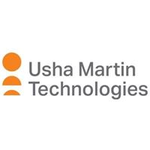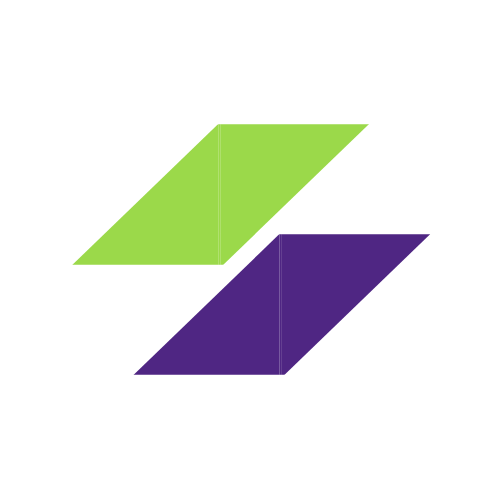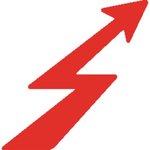Description
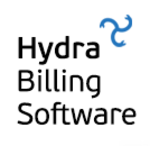
Hydra Billing
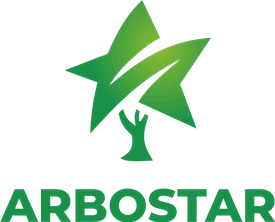
ArboStar
Comprehensive Overview: Hydra Billing vs ArboStar
Hydra Billing and ArboStar are both specialized software solutions designed to facilitate business operations in different niches. Let's break down each software platform:
Hydra Billing
a) Primary Functions and Target Markets:
- Primary Functions: Hydra Billing is a comprehensive billing and revenue management solution designed to handle complex billing scenarios, including subscription management, invoicing, payment processing, and customer relationship management. It supports multiple currencies and languages, making it suitable for global operations.
- Target Markets: Initially focused on telecommunication companies due to its robustness in handling high-volume transaction data, Hydra Billing has expanded to serve a variety of industries including utilities, finance, and digital services that require sophisticated billing systems.
b) Market Share and User Base:
- Hydra Billing has carved out a niche within industries requiring complex billing systems. While not as widely known as some generalist billing software, it holds a strong position in telecommunications and similar sectors.
- The user base is typically composed of medium to large enterprises that operate internationally and require a scalable and customizable billing solution.
c) Key Differentiating Factors:
- Complex Billing Requirements: Hydra Billing excels in handling intricate billing scenarios, which is critical for telecommunications and other similar industries.
- Global Capabilities: The platform's support for multi-currency and multilingual billing is a significant advantage for global enterprises.
- Integration and Customization: Offers robust APIs to integrate with existing systems, providing flexibility and making it a good fit for companies with specific needs.
ArboStar
a) Primary Functions and Target Markets:
- Primary Functions: ArboStar is primarily a business management software designed for the tree care and landscaping industry. It offers features such as CRM, scheduling, dispatching, customer communication, job estimation, and financial tracking.
- Target Markets: It specifically targets arborists, tree care services, and landscaping businesses. This niche focus allows it to address industry-specific challenges and workflows.
b) Market Share and User Base:
- ArboStar is highly specialized and is a leading player in its niche market. While its market share is small compared to broader business management software, it enjoys strong brand recognition and loyalty within its targeted industry.
- The user base consists of small to medium-sized businesses within the tree care and landscaping sectors.
c) Key Differentiating Factors:
- Industry-Specific Tools: ArboStar provides tools that are tailor-made for arboriculture and landscaping, such as tree inventory and health tracking.
- User Experience: The software is designed with simplicity and ease of use in mind, aimed at enhancing productivity for users who may not be tech-savvy.
- Comprehensive Features for Niche Market: Unlike general CRM or ERP solutions, ArboStar focuses exclusively on the workflow, challenges, and compliance requirements specific to tree care and landscaping businesses.
Comparison
In summary, while Hydra Billing and ArboStar both serve specialized markets, they cater to distinctly different customer needs. Hydra Billing focuses on complex billing requirements with a robust infrastructure suitable for large-scale telecommunications companies, while ArboStar is dedicated to providing end-to-end business solutions for the tree care and landscaping industry. Each software's success hinges on its ability to address the unique challenges of its respective niche, rather than competing in the broader software market. Consequently, their market shares reflect their specialized approaches, with significant influence within their target industries but potentially lesser visibility when compared to generalist software solutions.
Contact Info

Year founded :
Not Available
Not Available
Not Available
Bulgaria
http://www.linkedin.com/company/hydra-billing-solutions

Year founded :
2013
+1 833-272-6267
Not Available
Canada
http://www.linkedin.com/company/arbostar
Feature Similarity Breakdown: Hydra Billing, ArboStar
When comparing Hydra Billing and ArboStar, it is essential to understand that both platforms are designed to help businesses manage various aspects of their operations, including billing, CRM, and more. However, their focus and specific features can vary depending on their target industries and user needs. Below is a breakdown based on available data:
a) Core Features in Common
-
Billing and Invoicing:
- Both platforms offer robust billing and invoicing capabilities to streamline financial transactions and ensure accurate billing for services or products.
-
Customer Relationship Management (CRM):
- Hydra Billing and ArboStar provide CRM functionalities to help businesses manage customer interactions, track sales, and improve customer service.
-
Payment Processing:
- They incorporate features for handling various payment methods, simplifying the payment process for customers and ensuring secure transactions.
-
Reporting and Analytics:
- Both offer reporting and analytics features that allow businesses to track performance, identify trends, and make data-driven decisions.
-
Scheduling and Appointment Management:
- These platforms offer tools for managing appointments and schedules, which is particularly useful for service-oriented businesses.
b) User Interface Comparison
-
Hydra Billing:
- Typically designed with a focus on functionality and efficiency, Hydra Billing's interface might vary depending on the specific configuration and modules in use. It tends to prioritize ease of use for finance and operations teams with dashboards that highlight key financial metrics and processes.
-
ArboStar:
- ArboStar is known for an intuitive, user-friendly interface that often appeals to users in the service and landscaping industries. It emphasizes visual scheduling, easy access to customer information, and a streamlined approach to managing field operations.
The exact user interface can vary significantly depending on the customization and specific version implemented, but generally, both aim for an easy-to-navigate layout that enables quick access to critical business operations.
c) Unique Features
-
Hydra Billing:
- Telecom-Specific Features: If Hydra Billing is positioned towards telecom or utility industries, it might include features specific to these sectors, such as complex pricing configurations, usage data analysis, and subscriber management.
- Customization: Often provides deep customization options for billing and service management, allowing businesses to tailor the system closely to their specific operational needs.
-
ArboStar:
- Field Service Management: ArboStar offers extensive features tailored for industries like landscaping and field services, including fleet management, GPS tracking, and route optimization.
- Job and Project Management: Includes tools for managing projects, tracking job progress, and handling work orders, which are particularly beneficial for businesses with a focus on field operations.
Overall, while both platforms share core functionalities like billing and CRM, their unique features and interface designs are often tailored to their primary market focus, with Hydra Billing leaning towards telecom and complex billing models, and ArboStar being more suited for field services and service-oriented businesses.
Features

Not Available

Not Available
Best Fit Use Cases: Hydra Billing, ArboStar
Hydra Billing and ArboStar are two software solutions that cater to different business needs and industries. Here's a breakdown of their ideal use cases and scenarios in which each might be the preferred option:
Hydra Billing
a) Types of Businesses or Projects:
- Telecommunications: Hydra Billing is particularly suited for telecommunications companies that need to manage complex billing processes, customer accounts, and recurring charges.
- Utilities: Utility providers, such as water, electricity, and gas companies, can benefit from Hydra Billing’s capability to handle consumption-based billing and invoicing.
- Subscription Services: Businesses that operate on a subscription model, such as software as a service (SaaS) companies, can leverage Hydra Billing’s features for automated billing and subscription management.
- ISPs and MSOs: Internet Service Providers (ISPs) and Multiple System Operators (MSOs) who require detailed billing systems for their diverse service offerings can find Hydra Billing highly beneficial.
d) Catering to Industry Verticals or Company Sizes:
- Industry Verticals: Hydra Billing is designed to cater to industry verticals that require robust, scalable, and flexible billing solutions capable of handling diverse pricing models, including tiered, usage-based, and flat-rate billing.
- Company Sizes: While scalable, Hydra Billing may be more appealing to medium to large enterprises due to its comprehensive feature set and the complexity it can handle, though small businesses with specific complex billing needs could also find it valuable.
ArboStar
b) Preferred Scenarios:
- Arboriculture and Landscaping: ArboStar is specifically designed for tree care, landscaping, and lawn care businesses. Its functionalities address scheduling, field service management, and client communication.
- Field Service Management: Companies that manage crews in the field, require real-time scheduling, route optimization, and customer management features will find ArboStar advantageous.
- SMEs in Service Sectors: Small to medium-sized enterprises in various service sectors can benefit from ArboStar’s ability to streamline operations and enhance customer experience.
d) Catering to Industry Verticals or Company Sizes:
- Industry Verticals: ArboStar caters specifically to the green industry, including arboriculture and landscaping, providing industry-specific tools like job estimation, project management, and customer relationship management (CRM) tailored to these sectors.
- Company Sizes: ArboStar is more suited for small to medium-sized businesses that require a comprehensive management system without the extensive complex billing capabilities needed by larger enterprises or multinational corporations.
In conclusion, while Hydra Billing is best suited for industries with intricate billing needs across various service models, especially telecommunications and utilities, ArboStar is tailored for the green industry, providing comprehensive toolsets for field service management in tree care and landscaping. Each solution addresses the specific needs of its target industry to optimize business operations and enhance operational efficiency.
Pricing

Pricing Not Available

Pricing Not Available
Metrics History
Metrics History
Comparing teamSize across companies
Conclusion & Final Verdict: Hydra Billing vs ArboStar
When comparing Hydra Billing and ArboStar, both catering to different business needs with some overlap in functionalities, it's essential to evaluate them based on their strengths, weaknesses, and how they align with user requirements.
Final Verdict:
a) Best Overall Value:
The best overall value depends on the specific needs of the business. ArboStar tends to offer a stronger suite of features for businesses focused on comprehensive management, particularly in arboriculture and related services, whereas Hydra Billing might be better suited for those primarily in need of specialized billing solutions. If comprehensive business management, including customer relationship management (CRM), scheduling, and team management, is crucial, ArboStar might offer better overall value. However, if precise, efficient billing and invoicing processes are of prime importance, Hydra Billing could be the better choice.
b) Pros and Cons of Each Product:
Hydra Billing:
-
Pros:
- Specializes in billing and invoicing processes, offering efficient tools for automating financial transactions.
- Provides a streamlined interface that could simplify the billing process significantly.
- May integrate well with other systems for comprehensive financial management.
-
Cons:
- Limited scope beyond billing might require additional tools for full business management.
- May not offer advanced features needed for other business functions like CRM or project management.
ArboStar:
-
Pros:
- Comprehensive business management system, offering CRM, scheduling, project management, and more.
- Designed for businesses in the arboriculture sector, providing industry-specific tools.
- Streamlines a variety of business processes, potentially reducing the need for multiple software solutions.
-
Cons:
- Might be overwhelming for businesses only seeking billing solutions with its wide range of features.
- Potentially higher cost due to extensive functionalities compared to a focused billing system.
c) Specific Recommendations:
-
Use Case Evaluation: Businesses should consider their primary needs. If your business requires a robust solution for managing various aspects, including CRM and team coordination, ArboStar is worth the investment. For businesses where billing is the key focus, Hydra Billing might suffice.
-
Scalability Consideration: Evaluate how each system will grow with your business. ArboStar could offer greater scalability for expanding operations beyond billing, whereas Hydra Billing might serve shorter-term needs unless it integrates well with future systems.
-
Trial Periods and Demos: Leverage any available trial periods or demos to evaluate usability and fit. Engaging with both products can reveal which aligns more with the workflow and user experience preferences.
-
Cost-Benefit Analysis: Conduct a detailed cost-benefit analysis, taking into account the pricing structures alongside the features provided by each solution. Ensure the selected product offers not just the most features, but the most relevant ones for your business goals.
Ultimately, the decision should be based on which software aligns most closely with your current business processes, future growth plans, and industry-specific needs.
Add to compare
Add similar companies
